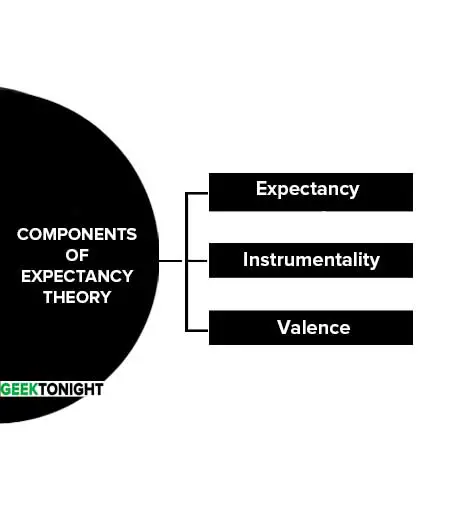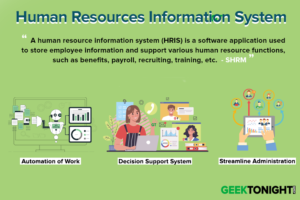Expectancy theory is a motivation theory first proposed by Victor Vroom of the Yale School of Management in 1964. The theory also assumes that people are rational and logically calculating.
Maslow’s Hierarchy of Needs and Herzberg Two Factor Theory were based on the relationship between internal needs and the resulting effort expended to fulfil them, while Vroom’s Expectancy Theory separates effort, performance and outcomes.
Table of Content
What is Vroom’s Expectancy Theory?
Vroom’s Expectancy Theory is one of the process of motivation theories. It is based on the idea that people believe that effort will lead to desired outcomes. Through experience, the individual expects that they can achieve performance. Finally, they direct their effort towards outcomes which help to fulfil their needs.
According to Vroom’s Expectancy Theory, motivation boils down to the decision of how much efforts to exert in a specific situation.
Expectancy Theory Assumptions
Vroom’s Expectancy Theory has assumed four assumptions:
- First assumption: is that individuals join organizations with some expectations about their motivations, needs, and past experiences. These influence how individuals behave in an organization.
- Second assumption: is that an individual’s behavior is a result of conscious choice. That is, people are independent to behave in a certain way according to their own expectancy calculations.
- Third assumption: is that individuals expect different things from the organization (e.g., job security, advancement, good salary and challenge).
- Fourth assumption: is that individuals will behave in a certain way so as to optimize outcomes for them personally.
Components of Expectancy Theory
The expectancy theory state three components that are linked to a person’s motivation. These components are:

Expectancy
Expectancy means an individual belief that particular degree of effort will lead to increased performance.
- Effort–performance relationship.
- Expectancy is a probability which may vary from 0 to 1.
- Expectancy of 0 indicates that the effort has no impact on performance.
- Expectancy of 1 indicates that a particular first-level outcome will follow behaviour.
Example: if I work harder then this will be better.
Instrumentality
Instrumentality represent a person’s belief that a particular outcome is dependent on a specific level of performance
- Performance–reward relationship
- This is a perception by an individual that first level outcome is associated with second-level outcome.
- Instrumentality ranges from -1 to 1.
- An instrument of 1 indicates that a particular outcome is totally dependent on performance on performance
- An instrumentality of 0 indicates that there is no relationship between performance and outcome
- Finally, an instrumentality of -1 reveals that high-performance reduces the chance of obtaining outcome why low performance increase a chance
Example: superior performance is instrumental in getting a promotion
Valence
Valence refers to the positive or negative value the people place on outcome.
- Rewards–personal goals relationship
- We assign value to an outcome depending on our requirements and needs.
- Mostly people attach high value to outcome such as increased salary, promotion or recognition but no value to stress or layoffs.
- An outcome of valence depends on individual needs and is measured with scale ranging from negative value to a positive value.
Example: If an employee has a strong preference for attaining a reward, valence is positive.
Read: What is Organizational Behavior?
Vroom’s Expectancy Theory Formula
Vroom’s Expectancy Theory proposed the formula to calculate the motivational force
Motivation = Expectancy x Instrumentality x Valence
The multiplier effect in the equation is significant. High level of expectancy, instrumentality, and valence will leads to results in higher levels of motivation.
- The overall level of motivation will be zero if, any one of the three factors is zero.
- Therefore, even if an individual thinks that his effort will lead to better performance, which will result in reward, motivation will be zero if the valence of the reward he expects to receive is zero.
- Example: if he believes that the reward he will receive for his effort has no value for him.
How a Manager can use Expectancy Theory?
The managers can be benefitted from the expectancy theory as it helps them to understand the psychological processes that cause motivation.
- The thinking, perceptions, beliefs, estimates of chances and probabilities and other such factors of employees strongly influence their motivation, performance and behaviour. It makes the process of understanding organizational behaviour easier.
- By understanding the factors that motivate and demotivate individual employees, the managers can create a work environment, climate and culture that will increase the motivation levels of employees
Read: What is Perception?
Advantages of the Expectancy Theory
- Self-interest: an individual who wants to achieve minimize dissatisfaction and attain maximum satisfaction.
- Common sense: explains the gamut of motivation by breaking it down into separately recognizable stages.
- More scientific: It explains many of the phenomenon related to employee efforts, work performance, employee motivation etc. that are observed in organizations.
Limitations of the Expectancy Theory
- Idealistic theory: few experts believe that the complexity of the theory makes it difficult not only to test but also to implement.
- Limited use and is more valid where individuals clearly perceive effort– performance and performance–reward linkages.
Read: Motivation Theories
Reference
- Robbins, Stephen P. 2010. Organizational Behaviour. New Delhi: Prentice-Hall.
Go On, Share & Help your Friend
Did we miss something in Organizational Behavior Tutorial or You want something More? Come on! Tell us what you think about our post on Expectancy Theory of Motivation | Organisational Behavior in the comments section and Share this post with your friends.
Human Resources Tutorial
(Click on Topic to Read)





